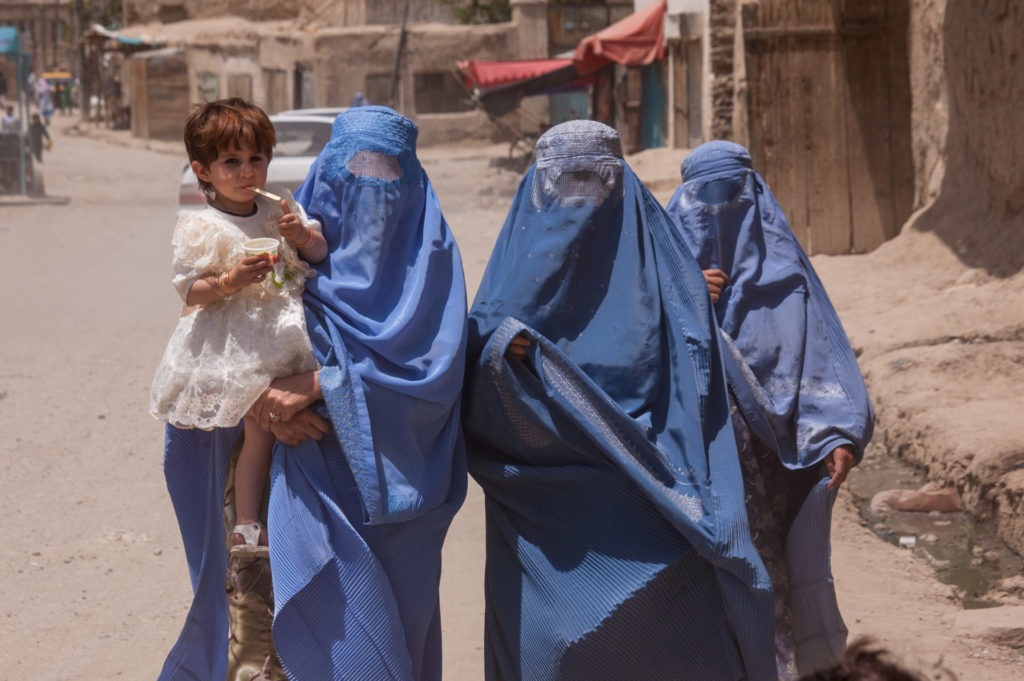Afghanistan’s Minister for Women, Hasina Safi has fled the country in disguise, saying it was “the hardest, hardest day.”
Safi, who told ABC’s The World Today program she had to disguise her face to evade the Taliban, is now in the UK. Safi became Afghanistan’s acting Minister for Women last May and served until the fall of Kabul last month.
“This would be my life’s most difficult situation and decision,” she told ABC. “I have been crying the whole week, I can’t stop. If you see my face, you will not understand who it is.”
“The military of Australia called me and they really tried to coordinate for my evacuation, but I could not because I was very, very afraid to take the decision to [take] the local taxi.”
“The Australian government also called me and they told me to send [them] the list [of staff to] the Ministry of Foreign Affairs.”
She reported she saw people trying to escape Kabul when she was at the airport.
“You could see that people were eating you with their eyes,” she said. “We went to Abbey gate, which was terrible, all fighting, beating people with lashes.”
“State Department, they give me a code [to use when I arrived]. They told me to show it. I really never thought that we will be again forced to refuge again,” she added.
“It is a very strange feeling when you do not have your own identity, the hope, the work, the pride. Meanwhile, I’m a mother, so I don’t want to show myself weak in front of my children.”
Safi remains concerned about the safety of women in Afghanistan.
“I’m very worried for the women’s security,” she said. “I worry a lot because there is a lot of uncertainty, there is a lot of horror. They cannot protect our rights, we can protect our rights ourselves.”
Last Friday, the executive director of UNICEF, Henrietta Fore, told CNBC that the agency holds the “deepest concern” for the country’s children and women.
“We are very worried about the status of women and children,” she said. “We need the women as teachers, as healthcare workers, in children’s hospitals as doctors; we need the women to be able to work in the society. We are, as yet, unclear in some areas if that’s going to be allowed.”
“In the past 20 years, we have had a very large gain in education, so we’ve tripled the number of schools,” she added. “We used to have 1 million children going to school. Now there are 10 million children, and more than 4 million are girls, we don’t want to go backwards.”
“The Taliban is not monolithic. So each district, each area, each school, is different. And so we talk to all of the relevant authorities and we are encouraging it, but we can use everyone’s advocacy about the importance of going to school for both girls and boys, because boys now are subject to recruitment into many of the local militia.”
“We want boys in school and we want girls in school, we want the future of Afghanistan’s, well their young people, to have a chance.”
“The real protection crisis [is] to try to get these children back with their families. Have their families gone on planes and they’ve been left behind? Or have they been sent over the fence and their families are still in Kabul?”
“We are just working so hard to try to reach the needs of the people. I can tell you that people are just terrified. They’re worried about the future, they don’t know what lies ahead.”
“They’re not sure where they’re going to get their food, is the shop open, the banks are closed, you know, salaries aren’t moving. They’re just trying to survive, and so that’s what we’re focused on, just survival of these people.”

